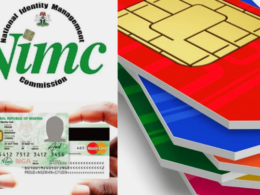Bolt has restricted its inter-country request feature for customers in Nigeria and South Africa due to the recent social media-fueled ride-hailing conflict between the two nations. This conflict has seen users from both countries engage in a widespread and malicious practice of booking rides across borders only to cancel them immediately, leading to significant disruptions in the service.
Although the exact origins of this ride-hailing feud remain unclear, it has been drivers who have borne the brunt of the situation. These drivers, who are already struggling with rising fuel costs and economic challenges, have found themselves victims of this senseless prank, resulting in wasted time, fuel, and effort. Many have expressed frustration as they were left chasing nonexistent rides across borders, further straining their already challenging work conditions.
In response to the situation, Bolt released a statement to the BBC confirming that they have taken swift action against users who participated in this disruptive behavior. The company has not only blocked the offending users but also decided to disable the inter-country request feature specifically for riders in Nigeria and South Africa. However, Bolt assures customers that this feature will remain operational for other countries, targeting the restriction solely at curbing misuse in these two nations.
Read also: Bolt and MKOPA Partner to Launch E-bikes in Kenya.
Doris Ikeri-Solarin, President of the Nigerian Union South Africa (NUSA), also addressed the issue, expressing disappointment over the waste of resources and energy on what she described as a “destructive rivalry” between the two countries. She urged both nations to focus on more constructive engagements rather than perpetuating unnecessary hostilities.
The ride-hailing war has also reportedly led to price surges in both countries, as the prank-induced cancellations created artificial demand spikes. Many affected drivers, fed up with the chaos, chose to log off their apps entirely, opting to pursue other means of livelihood rather than deal with the turmoil, which in turn left many prospective customers stranded and unable to secure rides during the peak of the conflict.
This incident serves as a stark reminder of the real-world consequences that can arise from online conflicts, affecting not just businesses but also the lives of those who depend on these services for their livelihood. As the situation unfolds, we will see how it impacts the broader ride-hailing industry in both countries.












